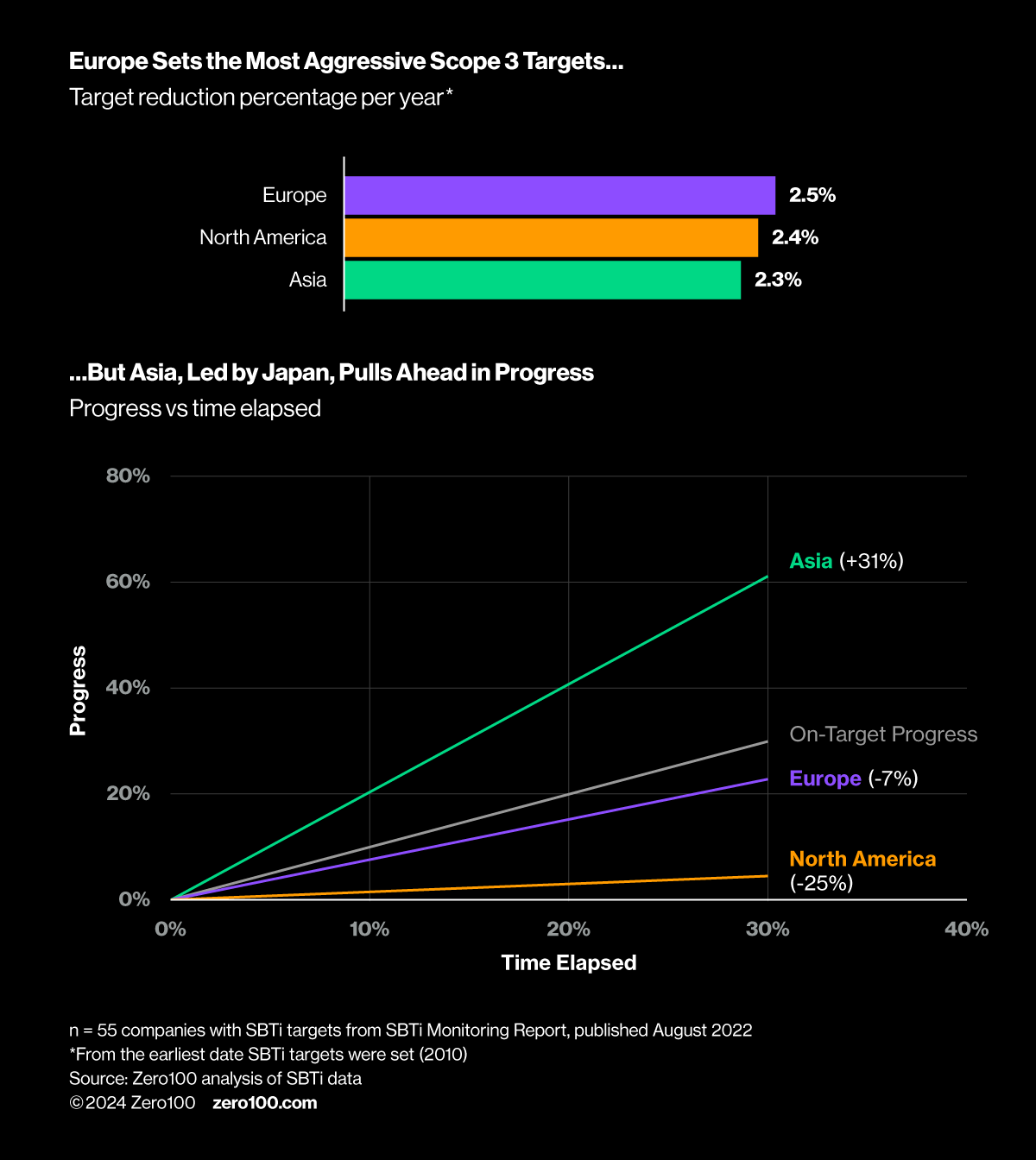

The Race to Net Zero: Japanese Companies Lead the Way
The relationship between digital hiring and Scope 3 is clear, but how does geography factor in? Within Asia, Japan stands out as a leader in cutting emissions – beating out Europe and North America in progress by a considerable margin.
Key Takeaways
-
1
Asia-based companies, primarily Japanese companies, reported significantly greater progress on Scope 3 reduction targets (+31% ahead of where they need to be in order to be on-target) vs companies based in the US and Western Europe since 2022.
-
2
On average, Asia based companies kicked-off initiatives earlier than other regions (on average, in 2016 vs 2018) and set later deadlines (on average, 2032 vs 2030) giving them four more years to achieve their goals compared to Europe and North America.
-
3
Companies with HQs in Europe are setting more ambitious targets than both North America and Asia-based companies but are reportedly falling behind, on average, by 7% (when looking at what they should have achieved already in order to be on-target).
In a recent data insight article, we looked at how the companies prioritizing their digital transformations are faring in relation to their decarbonization targets. We found that digital leaders came out at the top of the pack, setting higher reduction targets and hitting them faster, supporting the hypothesis in our company name. We wanted to know, however, if geography factors in. Are certain regions more confident and optimistic, more willing to take accountability, and seeing faster progress as they work towards carbon reduction?
Our (somewhat surprising) finding was that Asian companies, primarily Japanese, are further along in reaching their goals (at least based on “reported progress”). We speculate this is down to a combination of realistic target setting and early reduction performance, or it may have to do with positioning communications. The Japanese companies in our data set are 38 percentage points ahead of Europe and 56 percentage points ahead of North America. A notable factor to consider when looking at these numbers is the amount of time each region allows themselves to accomplish their targets. Asia-based companies started the earliest and set their deadline the latest, leaving them an average of 16 years to accomplish their target (2016-2032). European and North American-based companies started at least a year later and set themselves a 12-year time frame (2018-2030 and 2017-2029, respectively). Japan kicked off, on average, in 2015, giving them 17 years to reach their goals.

Getting an early head start might have helped Japan-based companies get ahead in their journey, alongside government policies, which include a cap-and-trade system, renewable energy policies (feed-in tariff), energy efficiency standards set across various sectors, and recently launched carbon trading initiatives.
An example of a Japanese company taking the lead on Scope 3 is Nissan Motor Co., Ltd., who were reportedly 38% ahead of their target progress in 2022, just two years into their 2019-2030 timeline. Their SBTi target description specifies that “by the early 2030s, every all-new Nissan vehicle offering in key markets will be electrified.” The auto giant is backing up their claims with major investments, citing plans to invest up to £2 billion to boost electric car manufacturing in the UK. Nissan President and CEO Makoto Uchida stated in September that there was "no going back" on electrification plans as the company aims for 98% of all European sales to come from electric vehicles by 2027.
But what is it that differentiates Japan-based companies’ approach to Scope 3 carbon that has allowed them to pull ahead in the race to net zero? What this data leads us to conclude is that Japan-based companies have taken the lead in tackling carbon – through setting and verifying targets early and chipping away at those targets with a variety of initiatives, like Nissan’s electrification push. To make progress towards reaching your own targets, look to Japan-based companies who have navigated themselves to the front of the pack, like ASICS, Nikon, and Nissan, for inspiration.
To see a different data cut or to dig deeper into this topic, reach out to our Head of Research Analytics, Cody Stack, at Cody.Stack@zero100.com.
Methodology
Zero100’s proprietary data and analytics are a combined effort between our data scientists and research analysts. We provide data-first insights matched with our own research-backed points of view and bring this analysis to life via real-world case examples being led by supply chain practitioners today.
For this study, we analyzed SBTi data from 187 supply chain organizations, focusing in on the 55 companies with Scope 3-specific SBTi targets.